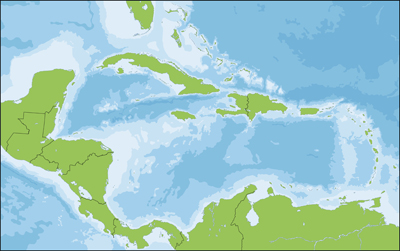Cash-strapped nations of the Caribbean islands are selling passports to people who are willing to bring wealth to their land. Investors can buy citizenship without even setting foot on a faraway land.
There is a growing global demand for a second citizenship. Rich people are willing to pay hefty sums to buy it as a hedge against financial worries or political instability in their country of origin. Many of them get passports in tax havens so that they can hide their unaccountable assets or financial crimes. An added advantage to citizens of developing nations is that the new citizenship offers visa-free access to many countries, including advanced nations.
While many countries are offering citizenship purely for economic benefits, there is a danger that terrorists and criminals or people facing investigation may sneak into other countries using a second passport.
The concept of citizenship has changed over the years. It is different from the traditional concepts like place of birth, mother tongue, racial, cultural and religious identity and sense of belonging or allegiance to a land. Unlike in the past, citizenship has more to do with money and governments tend to give preferential treatment to affluent citizens.
Giving up citizenship owing to taxation is a growing trend in many nations including the United States. After the demonetisation drive and emphasis on digitisation, the filthy rich in India are fearful of the Union government's move to root out black money and bring back wealth parked overseas. Since the government launched investigations into deposits of Indians in countries like Switzerland, many of them are looking at other options like buying citizenship in safer lands.
Investor visa programmes are available in many nations. Even advanced countries like the United States and the UK are offering permanent residency to wealthy people that may eventually lead to citizenship.
The identity of the original investor in tax havens is protected by strict laws regarding secrecy. So there are only rough estimates about the share of Indians in such accounts. Nobody has come out with exact figures about the wealth of Indians in tax havens in different countries. The highest estimate comes to around Rs 10 lakh crore, but nobody is sure.
Countries like Greece, Malta, Hungary, Cyprus, Australia, the United States and the United Kingdom have citizen programmes for ultra-rich people with an aim to generate jobs in their country. US visa is available for anyone who invests more than $1 million in business that gives jobs to a minimum of 10 people or invest $5,00,000 in some underdeveloped areas of the country. Some nations offer only resident visas called 'golden visa' that may later lead to citizenship.
Caribbean countries
Caribbean countries attract people with comparatively inexpensive citizenship and visa-free gateway to many countries. Chinese, Russians, Indians and people of Middle east countries are among the target class for citizenship in these countries.
 Caribbean nations woo foreign investors with offer of citizenship
Caribbean nations woo foreign investors with offer of citizenship
Eastern Caribbean nations like St Kitts & Nevis and Dominica are favourite destinations. St Kitts citizenship is given to anyone who donates $2,50,000 to retired sugar workers’ fund. Or, instead of donating, you can invest $4,00,000. The country runs the longest citizenship programme.
Prime Minister Roosevelt Skerrit of Dominica toured Persian Gulf and Southeast Asian countries to sell his country’s citizenship for cash. Dominica offers visa-free travel to more than 50 countries.
Antigua & Barbuda started its citizenship investment programme in 2013. Grenada's citizenship programme provides free-visa to more than 100 countries. Favoured nations programme of Panama is one of the least expensive.
Modus operandi
But how do wealthy people move their assets in India to tax havens in distant countries?
Many rich people transfer their wealth to tax havens by using legal and illegal ways. The Reserve Bank of India rules restrict an Indian national from sending abroad not more than $250,000 a year. If family members including minors or their proxies team up, a substantial amount of money can be transferred to a foreign account. Indian companies are allowed to invest up to four times their net worth. Though this kind of money exchange is not intended for personal wealth, people transfer their wealth as company owned property outwitting the rules.
 The number of Indians seeking a second citizenship may go up
The number of Indians seeking a second citizenship may go up
Most often, rich people prefer illegal modes to hide wealth transfer from public gaze. Here money transfer systems like hawala networks, which work on trust, come in handy. It's very simple: a local hawala agent collects cash in India and tells his foreign counterpart in the related country to hand over its equivalent in foreign currency. The cash reaches the destination confidentially and the deal is closed, leaving no evidence for the amount transferred.
Recently, hawala dealers exchanged foreign currencies from the Middle East by paying more value in Indian rupee with demonetised 500 and 1,000 rupees notes to customers who could easily deposit them in their local bank accounts.
Many companies with powerful connections import goods at prices of higher than actual. Then, as per understanding, the excess money paid to the exporter is transferred to the importer's foreign account. Another practice is to place import orders by paying an advance and then cancel the order before it is dispatched. Several companies are launched in various names only to be closed down soon after transferring money against orders. They escape scrutiny of the taxman and other authorities who find it difficult to keep track of them.





